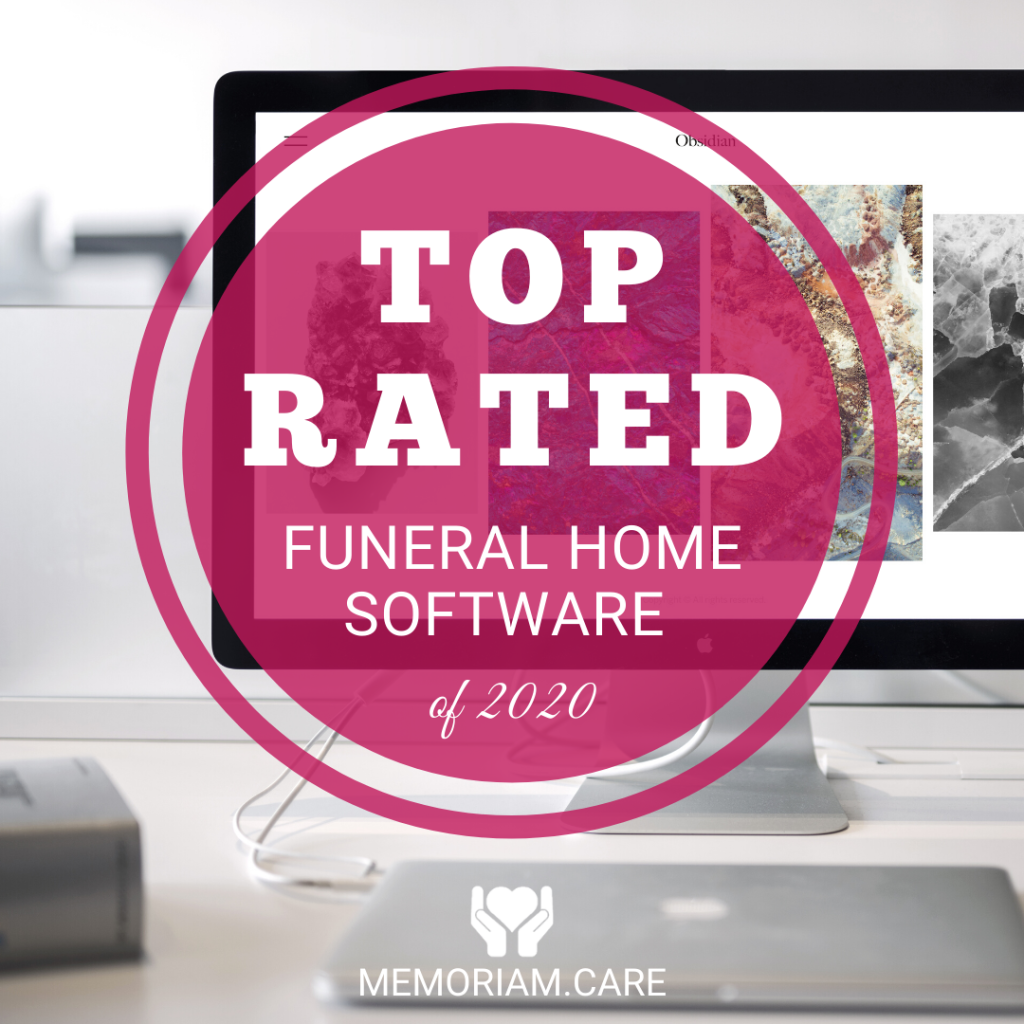Let’s face it: Covid-19 has reshaped the landscape of how we do business. Funeral home software is no longer a convenience as much as it is a necessity. The days of paper ledgers and rolodexes are a distant memory for most industries. Funeral homes can no longer operate under conventional, in-person business practices. The funeral industry is likely to follow global trends. Most industries have integrated software into their processes. Adopting digital processes into meeting rooms, classrooms and commerce has a competitive advantage. This is especially true in light of Covid-19. As we move into the heart of the 21st century, it’s unlikely funeral home software will be anything other than business critical.
Why funeral home software helps you succeed
Over the past decade, software designed for the funeral industry has taken off. There are accounting firms, marketing agencies, law firms, web services and many more—just for funerals. These niche companies offer software for the unique business needs of funeral homes. Technology has enabled industry in general to automate processes. Additionally, the internet has globalized the way we do business. Walk-ins and drive-bys are just as much bygones as the local phonebook.
Customers are casting a wider net by the touch of their fingertips. In doing so, funeral homes are seeing more leads than ever before. The need for process automation was here long before Covid-19.
Early adopters of funeral home software have seen a competitive advantage in light of Covid-19. They were already capable of operating near-virtually long before the first stay-at-home orders.
Funeral home software enables you to:
- Manage your business from anywhere.
- Help more customers at the same time.
- Conveniently access professional business services included with the software.
- Serve families who cannot travel due to illness or financial reasons.
- Expand your community and customer base.
6 Best Funeral Home Software Solutions of 2020
Are you wondering what types of funeral home software are available? We’ve compiled a list of 6 best funeral home software solutions on the market today.

1. Cloud based customer management system (CMS)
Cloud based customer management systems allow you to access your client database from anywhere. This is useful while on-the-job because it allows you to work from anywhere. Obit automates publishing death notifications. It also integrates with schedules, reports, finance and a range of other business processes. Learn more about Obit.
2. Web design services for funeral homes
Today’s consumer expects a quality online experience. The funeral industry is no different. Your website may very well be the first (and only) interaction someone has with your funeral home. A modern website with an intuitive, user-friendly interface is essential for success. Web design services for funeral homes, like FrontRunner Professional, know the intricacies of running a funeral home. Learn more about funeral home websites from FrontRunner.
3. Funeral home marketing agencies
How customers learn about businesses—any business—is different now than it was just ten years ago. Consumers spend more time online than ever before. Clients are not searching for your funeral home via phone books, magazine ads and flyers. Digital marketing reaches clients where they are spending their time: online. It’s an excellent investment for any business. Funeral homes have a unique target market and customer base. Funeral home marketing agencies, like Funeral Innovations, understand this. Learn more about Funeral Innovations.
4. Obituary templates and design services
A beautiful and meaningful obituary is incredibly important. Obituaries are often written by the family with guidance from the funeral director. Display them as printed stationary at the funeral service as well as submitting them to news outlets. It’s ideal to find a design service familiar with the funeral industry. Services like OBITUAREe offer professional templates and writing guidelines for obituaries. Learn more about OBITUARe.
5. Bookkeeping and payment processing for funeral homes
Funeral homes are like any other business. They need accounting and payment processing solutions. Although there are many bookkeeping software options, the funeral industry has unique needs. It’s important to select a payment software that can support your funeral home’s financial processes. Osiris Software is designed by funeral directors in collaboration with professional accountants. The software addresses funeral-specific financial needs. The software includes payment processing, contact management and Quickbooks integration. Learn more about Osiris Software for funeral homes.
6. Video livestreaming service for funerals
The Kennedy funeral during the Covid-19 crisis was one of the first publicized virtual funerals. They used Zoom to host over 3000 virtual attendees. The event was a success. They coordinated with Zoom to make sure they had the right type of license for their capacity. Zoom has proven reliable in hosting virtual events around the world. The size of your funeral will impact the type of Zoom licensing you need to webcast your funeral. Learn more about Zoom pricing and plans.

Closing thoughts
Covid-19 shined a spotlight on how we conduct business in the funeral industry. We have needed to virtualize everything. In doing so, funeral home software provides a competitive advantage. It is quicker and more efficient. It meets the demands of today’s consumer landscape. There is no reason to believe that digital services will stop with Covid-19. Expect the funeral industry to regard automation as a business critical. The future is here.
Funerals are unique in their needs especially with privacy, logistics and licensing. Our service is specifically designed to support funeral homes and guests. You can host a funeral 100% virtually, or livestream an in-person event. Memoriam.Care uses the Zoom API to help families and friends grieve together. We are launching soon. Join our mailing list to learn more!



